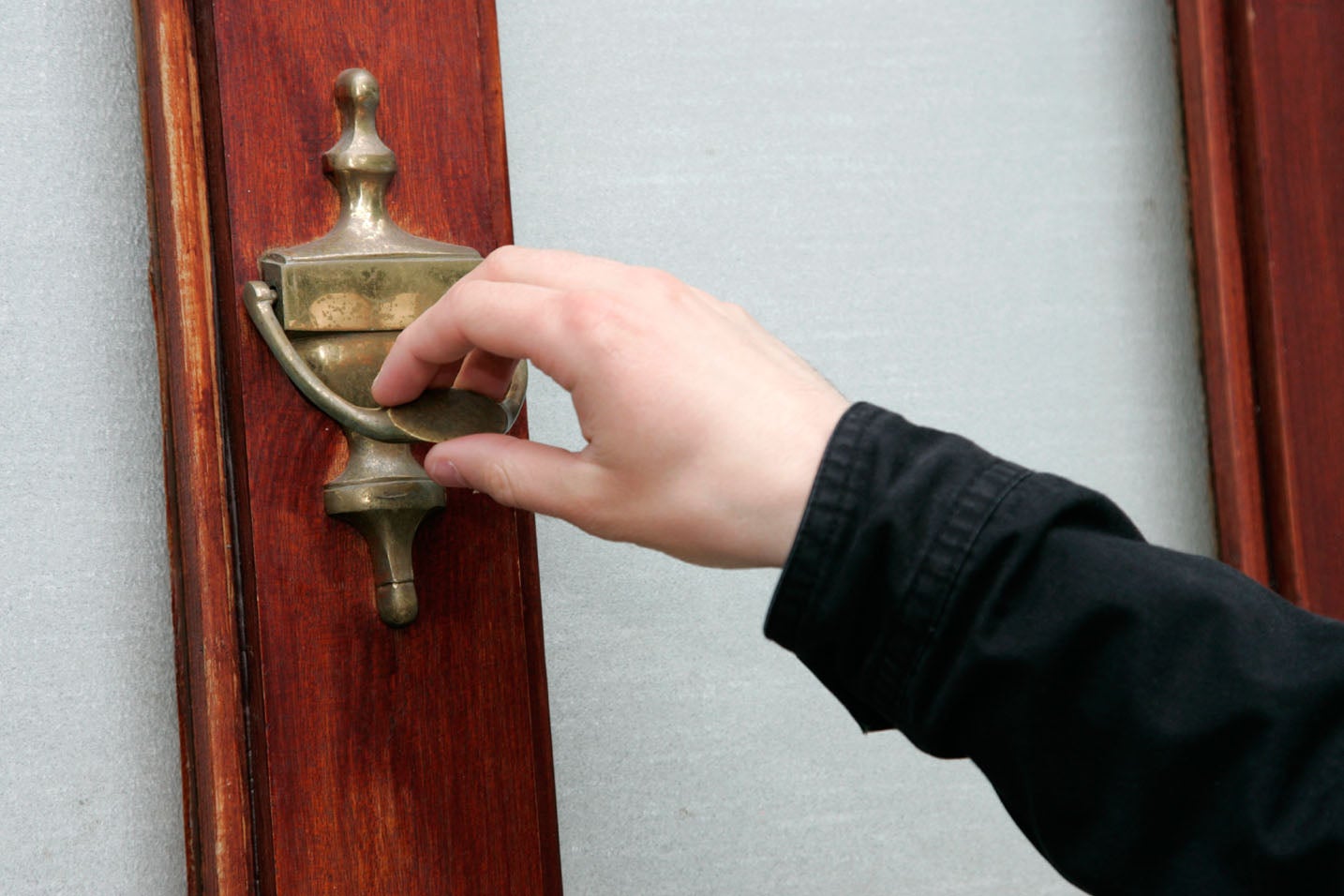I’ve learnt to make lists – and that the brain’s amazing
In Sickness and in Health: The next instalment of my own post-accident A-Z

Last year, Rebecca’s husband Nick was hit by a car and seriously injured. Here, in one of a series of columns, she writes about life after his accident
I’ve been putting together my own post-accident A-Z, picking out the words and phrases that have become constant companions in the past 12 months. This is the latest instalment.
Knock knock – When Nick was in a shared room in hospital, his bed was surrounded by curtains and nurses used to “knock” verbally before entering. Now he is in the care home, he has his very own door knocker, as well as a numbered door, painted bright blue, to which it attaches. One of the things that made me feel better about the idea of my partner going into residential care was this little piece of metal and the dignity it afforded.
Legal deputy – If a loved one hasn’t given you the power of attorney over their affairs and they get run over and end up hanging out in comaville for months on end, you too can experience the highs and lows (wait, no – it’s just lows) of trying to become their legal deputy. Given the time, money and stress that it took for the Court of Protection to grant me deputyship over Nick’s affairs, I feel that I really ought to have been awarded a gold badge, Wild West-style, with Deputy Armstrong engraved on it. Of course, I understand why it takes an age – there have to be safeguards in place to stop outlaws from cashing in on another person’s life-threatening condition – but the wait nearly broke me, emotionally and financially.
Misery books – In front of me are three hard-backed notebooks. These are my misery books, their pages filled with the fears, fury and frustration of the journey so far. They’re not journals, they don’t contain my innermost thoughts but are filled with accounts of phone calls made, names taken down, jargon spouted, reference numbers noted, analogies explained, meetings had and lists, lists, lists, lists of lists of things that need to be done. None of them was bought for the purpose, so the first starts off with old work notes of mine before veering into a grave new world of ICU and OMG. When I’d filled up that, I started using a book that had once been my diet diary. Occasionally, when waiting on the phone to companies that appreciated my call, I would flick back to the pages filled with lists of dried fruit, miso soup and salad and marvel that I used to a) be so much slimmer; and b) have so little else to care about. Book three is newly started, but is filling up as swiftly as its predecessors.
Neuroplasticity – This is the brain’s ability to rewire itself during life, as well as after injury, and is what Nick’s grey matter has been undertaking since the accident. It’s when nerve cells in the brain form new connections and compensate for neurons now missing in action. One august doctor explained it to me using a pen and paper, scrawling diagrams and pictures of ponds, bridges and stepping stones to get his point across. The bottom line is that the brain is amazing and neuroplasticity is its ability to – sometimes – work magic.
Join our commenting forum
Join thought-provoking conversations, follow other Independent readers and see their replies
Comments
Bookmark popover
Removed from bookmarks